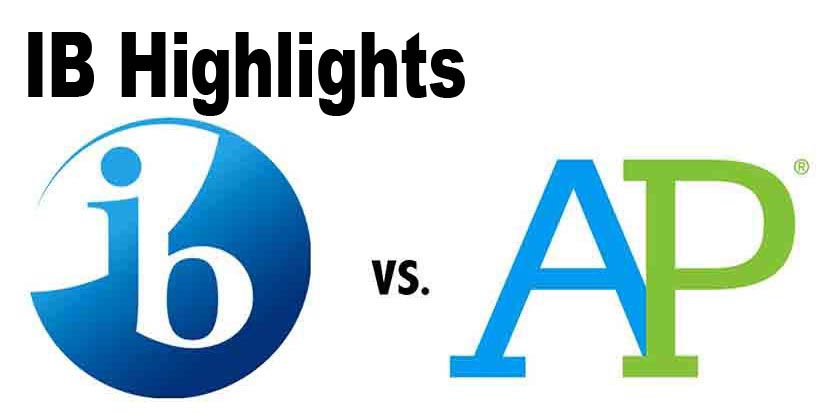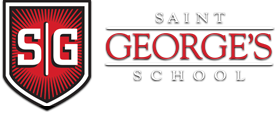IB Highlights: IB vs AP
March 01, 2021

SGS students follow the International Baccalaureate Diploma Programme instead of Advanced Placement classes. How do they differ?
IB Question of the Week: What is the difference between IB and AP?
Here are some of the structural differences between the IB and AP programs:
• IB is an integrated program of study
• Critical thinking (within classes and in TOK class)
• Emphasis on writing skills (must write a 4,000 word essay)
• Essay exams, free response
• Must take the class in order to take the exam
• Must take entire program of courses (6 of them) + the Core to earn diploma
• End-of-year IB tests are graded according to how well your exam demonstrates mastery of the stated course objectives. The criteria for each class is identical – regardless of where you register for it.
o Grading is conducted by a team of experts whose work is closely monitored to ensure that that assessment is consistent between students. You can also review the detailed description of the IB exam grading philosophy and process.
• AP allows students to choose off of the “a la carte” menu
• Content based
• Very limited time to teach writing and research skills in an AP course
• Multiple choice 50% and essay exams 50%
• Don’t need to take the class to take the exam
• For most AP Exams, your score is a weighted combination of your scores on the 2 sections, multiple-choice and free-response. Some AP courses have assessments that include other scored components.
Here are some of the philosophical differences:
• The IB classes take a more international focus than AP courses.
o "In an AP class, you may look very deeply at an issue and look at it from multiple perspectives," says Matthew Nelson, director of advanced academics for Metro Nashville Public Schools in Tennessee. "In IB, it would probably be more, still looking at an issue, but you may be looking at an issue over time and how it has impacted other parts of the world and how there is that connectivity to it all."
The above information was obtained from this article in US News and World Report published on Dec. 4, 2019.
EE Highlight: The junior class is continuing their EE process. They are beginning to choose their subjects and supervisors for their EEs and are continuing to work on narrowing research questions, finding resources, and developing the methodology of the EEs.
Here is an IB Video that was shared with the juniors on how to develop a research question. An example of the evolution of a research question is shown in This PowerPoint. See more explanations about EE research at www.ibo.org.
CAS Experience Highlights: CAS experiences for all of our Upper School students (in the US and in China) include FTC robotics, writing cards for children in the hospital, night skiing, cleaning and organizing the Biology lab room, training a puppy, and cleaning the Chemistry lab.
IB Overview: The Diploma Programme (DP) curriculum for grades 11-12 is made up of six subject groups and the DP core, comprising Theory of Knowledge (TOK), Creativity, Activity, Service (CAS) and the Extended Essay (EE). Please refer to our IB webpage and to the IB Resources page in PowerSchool Learning for detailed IB information.

